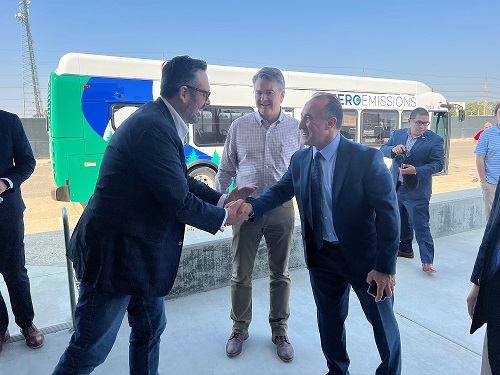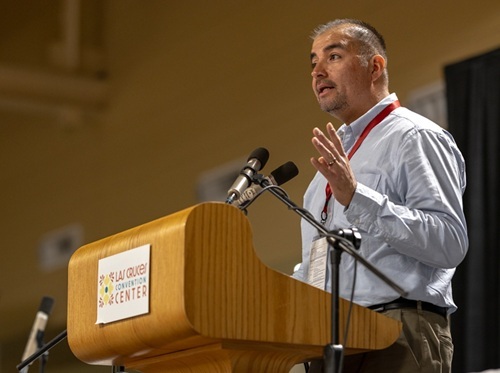The Californian Department of Transportation – known as Caltrans – recently awarded $41.6 million in planning grants for 90 sustainable transportation projects statewide that address local and regional impacts of extreme weather events.
[Above photo by Caltrans]
The selected projects receiving those grants seek to help reduce air pollution, improve resiliency of the state highway system, enhance access to safe walkways and bike paths, and increase natural disaster preparedness.
Caltrans said nearly $30 million of that funding comes from one-time state and federal sources incorporated within the $15 billion clean transportation package within California’s 2022-2023 state budget, while a further $12.4 million comes from Senate Bill (SB) 1, the Road Repair and Accountability Act of 2017.

Tony Tavares, director of Caltrans, noted in a statement that those grants will support project planning and conceptual design efforts, helping move the projects closer to construction.
“California is at the forefront of planning transportation projects built to withstand the effects of climate change,” he said. “By working closely with local partners, we can maintain a sustainable, adaptable and resilient transportation system that will serve the people of California far into the future.”
Caltrans said that $41.6 million in grants will be divided into three separate funding pools:
- $20.2 million will fund Sustainable Communities Competitive and Technical Grants to 56 local, regional, tribal, and transit agencies for transportation and land use planning, as well as planning for electric vehicle charging infrastructure. This includes more than $8 million to fund planning for 21 projects that improve safety and access for people who walk and bike.
- $18.1 million will fund Climate Adaptation Planning Grants to 26 local, regional, tribal, and transit agencies to identify transportation-related climate vulnerabilities through the development of climate adaptation plans, as well as project-level adaptation planning to address climate impacts to transportation infrastructure.
- Finally, $3.3 million in federally funded Strategic Partnership Grants will support eight planning projects for comprehensive highway corridors, rural agriculture and highway safety, tourism demand, intercity bus systems, transit centers, and other sustainability initiatives.
 States
States
Serna Stepping Down as Secretary of NMDOT
February 13, 2026 States
States

